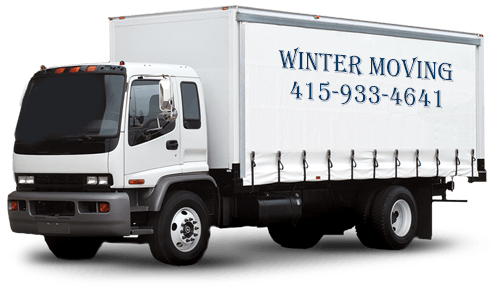Types of Moving Companies
Understanding the several types of moving companies is the first step to make an informed decision. Here are the commonest types:

Local Moving Companies:
These companies handle moves within a certain geographic area, typically within 50-100 miles. They are ideal for short-distance moves, such as within the same city or region.
Long-Distance Moving Companies:
Long-distance movers handle moves that go over greater distances, often across state lines. These companies are equipped to control the logistics of long-distance transportation and therefore are usually regulated by federal authorities.
International Moving Companies:
If you're moving to another country, you will need a company that are experts in international moves. These movers handle everything from customs clearance to international shipping logistics.
Full-Service Moving Companies:
Full-service movers take care of everything, from packing and loading to transporting and unloading your belongings. They can even unpack and set up your new house. This option may be the most convenient but also the most costly.
Specialty Movers:
Some companies focus on moving specific items, for example pianos, antiques, artwork, or large, heavy items. These movers possess the expertise and equipment needed to handle delicate or valuable items safely.
How to Choose the Right Moving Company
Selecting the right moving company is important for a successful move. Here are some steps to help you make the best choice:
Research and Recommendations:
Start by asking friends, family, and colleagues for recommendations. Personal experiences offers valuable insights. Additionally, research online for reviews and ratings on platforms like Google, Yelp, as well as the Better Business Bureau (BBB).
Verify Credentials:
Ensure the moving company is licensed and insured. In the U.S., interstate movers ought to be registered with the Federal Motor Carrier Safety Administration (FMCSA) this will let you valid USDOT number. For international moves, check for membership in organizations just like the International Association of Movers (IAM).
Request Multiple Quotes:
Contact several moving companies to acquire estimates. Be cautious of quotes which might be significantly lower than others, as they may indicate a gimmick or subpar service. Make sure the quotes include all potential costs, for example fuel charges, packing materials, and extra services.
Check for Hidden Fees:
Read the fine print to be sure there are no hidden fees. Some companies may charge extra for such things as stairs, long carries, or moving large or heavy items.
Understand the Contract:
Before signing any agreement, carefully look at the contract. Ensure it contains all the services you're spending money on, the estimated delivery date, along with the final cost. Don't hesitate to find out if anything is unclear.
Assess Their Experience:
Experience matters in terms of moving. Ask how long the company has been around business and when they've experience with your specific type of move. For example, for those who have valuable antiques or fragile items, you’ll want a company proficient in handling such items.
What to Expect During the Move
Once you have selected a moving company, it is advisable to know what to expect on moving day:
Pre-Move Preparation:
Before the movers arrive, ensure that everything is packed and ready to go unless you've opted for full-service packing. Label boxes clearly, and make sure fragile items are packed securely.
Moving Day:
The movers will arrive at your home with the agreed time. They will load your belongings on top of the truck, being careful to protect your items and home from damage. If you've chose packing services, they'll pack your items before loading them.
Transportation:
Your belongings is going to be transported to your new home. For long-distance or international moves, this method may take several days or even weeks, with respect to the distance and logistics.
Unloading and Unpacking:
Once at your new home, the movers will unload your belongings. If you have selected unpacking services, they'll also unpack your items and help set the home. Ensure that things are accounted for and in good condition prior to you signing off on the road.
Hiring a moving company can make your relocation much simpler, but it is critical to choose the right one. By understanding the several types of moving companies, doing thorough research, and knowing what to anticipate, you'll be able to ensure an even and stress-free move. Remember to plan ahead, ask the correct questions, and take time to find a mover that meets your unique needs. With the best preparation, your moving day is usually a positive and efficient experience.